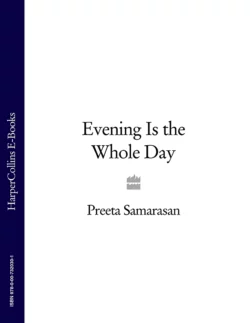Evening Is the Whole Day

Preeta Samarasan
Тип: электронная книга
Жанр: Современная зарубежная литература
Язык: на английском языке
Стоимость: 813.25 ₽
Издательство: HarperCollins
Дата публикации: 16.04.2024
Отзывы: Пока нет Добавить отзыв
О книге: ‘A magical, exuberant tragic-comic vision of post-colonial Malaysia reminiscent of Rushdie and Roy. In prose of acrobatic grace, Samarasan conjures a vibrant portrait, by turns intimate and sweeping, of characters and a country coming of age. The debut of a significant, and thrilling new talent.’ Peter Ho DaviesSet in Malaysia, this spellbinding, exuberant first novel introduces us to a prosperous Indian immigrant family, as it slowly peels away its closely guarded secrets.When the family′s servant girl, Chellam, is dismissed from the big house for unnamed crimes, it is only the latest in a series of losses that have shaken six-year-old Aasha′s life. Her grandmother has passed away under mysterious circumstances and her older sister has disappeared for a new life abroad, with no plans to return. Her parents, meanwhile, seem to be hiding something away – from themselves, and from one another.As the novel tells us the story of the years leading up to these events, we learn what has happened to the hopes and dreams of a family caught up in Malaysia′s troubled post-colonial history. What bought the Rajasekharan family to the Big House in Malaysia? What was Chellam′s unforgivable crime? Why did the eldest daughter leave the country under strained circumstances? What is Appa – the respectable family patriarch – hiding from his wife and his children?Through this vibrant cast of characters, and through a masterful evocation of the clashes and strains in a country where Malays, Indians and Chinese inhabitants vie for their positions in society, Preeta Samarasan brings us an enthralling saga of one household and the world beyond it.